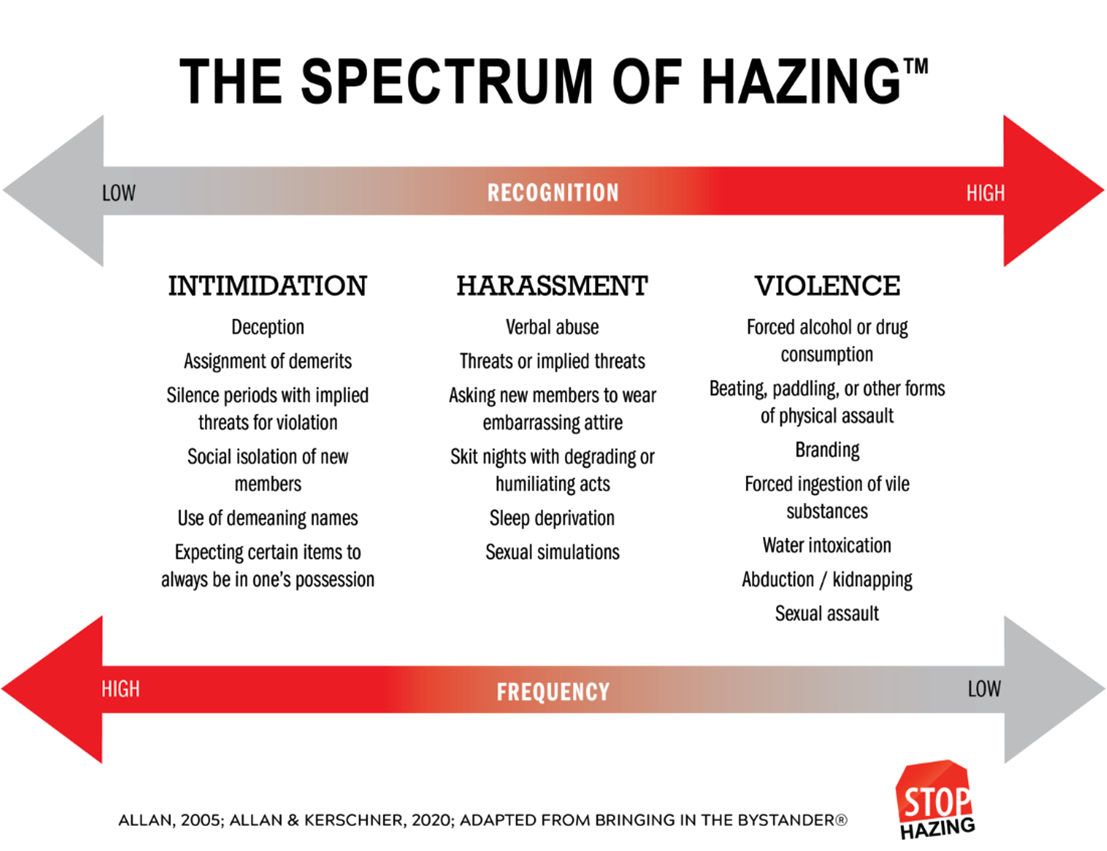Know Hazing When You See It
Hazing is behavior related to organizational membership or potential membership, regardless of consent or intentionality, that meets two or more of the following:
- Is inconsistent with the purpose of the club or organization
- Is careless or reckless in nature
- Creates unsafe or harmful conditions
- Targets or exploits someone's vulnerabilities
- Unreasonably interferes with academic activities or success
If you're unsure whether something is hazing, ask a trusted staff member or report it anonymously. You don't have to be certain; you just have to speak up.
The Spectrum of Hazing™ is a research-based resource developed by StopHazing researchers, Dr. Elizabeth Allan & Dr. Dave Kerschner.
Learn more about the research and what it tells us.(link is external)

Contact
If you receive a report, witness, or experience hazing, please report it immediately.
- Report to Student Conduct ("Report an incident" button below)
- Emergency: call 911
When Does Behavior Cross the Line?
A tradition or bonding activity becomes hazing when:
- Participation is not truly voluntary
- It causes physical, emotional, or academic harm
- It relies on power imbalance or secrecy
- It makes someone feel unsafe, degraded, or coerced
If you're unsure, ask:
- Would this be okay if it were public?
- Would I feel safe saying no?
Safe Traditions That Build Community
- Fostering unity and teamwork: Consider activities that require collaboration to achieve a common goal, which can effectively build unity and communication skills.
- Promoting community engagement: Collaborating on a community service project enables members to bond while giving back. This also reinforces positive values and public image.
- Enhancing personal and professional development: Promote engaging activities that build skills and encourage personal growth. These can help new members see the value in joining the organization.
- Creating meaningful traditions: Replace any negative past practices with new, positive traditions that mark the group's journey.